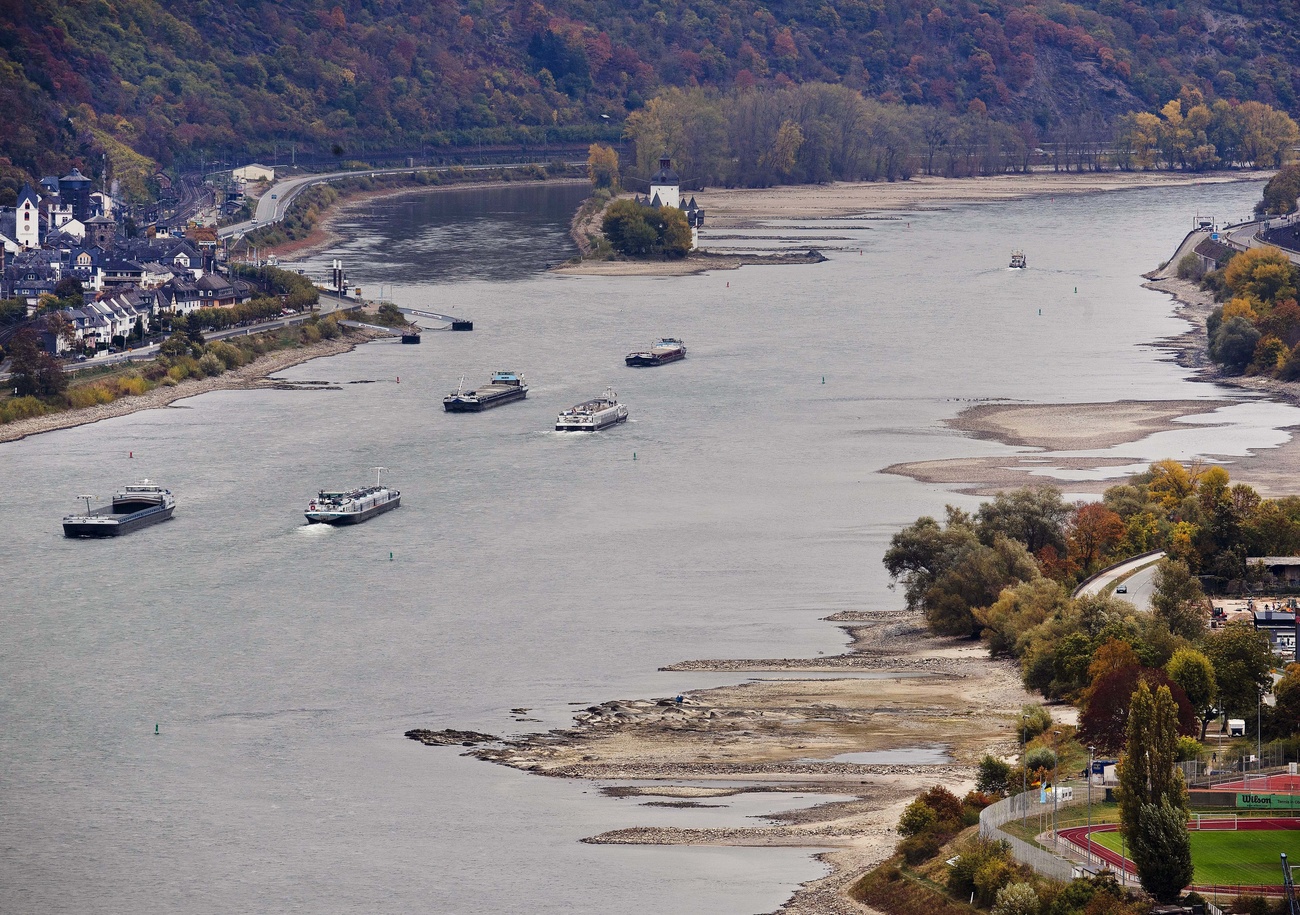
Drought affects Swiss supplies of oil products

Low water levels in the Rhine, as well as logistical problems on European rail lines, are hitting supplies of oil products to Switzerland.
To ensure supplies, the Federal Office for National Economic Supply (FONES)External link has decided to temporarily cut compulsory reserves of these products by 6.5%, according to a press releaseExternal link on Friday. The measure is effective from July 25 to the beginning of September.
Switzerland stocks large quantities of food, medicines and oil to cope with possible shortages. Responsibility rests largely with the private sector, not with the authorities. For example, an importer of petrol will be required by law to store some of it for emergency use. This avoids the need to build up large reserves in one place. In return, Switzerland finances the storage costs of companies through a reserve fund.

More
Why Switzerland stockpiles for possible emergencies
Although there are enough supplies of oil products on the international market, supplies are coming in only partially to Switzerland for two reasons, says FONES. First, prolonged drought has caused a record drop in water levels on the Rhine, so shipping cargoes on the river have been drastically reduced. Second, cross-border trains have been hit by big delays and cancellations owing to lack of staff and maintenance work. Oil supplies come in mainly in these two ways.
The last time FONES cut compulsory reserves of oil products was in summer 2018 when drought also reduced shipping capacities on the Rhine.

In compliance with the JTI standards
More: SWI swissinfo.ch certified by the Journalism Trust Initiative


























You can find an overview of ongoing debates with our journalists here . Please join us!
If you want to start a conversation about a topic raised in this article or want to report factual errors, email us at english@swissinfo.ch.